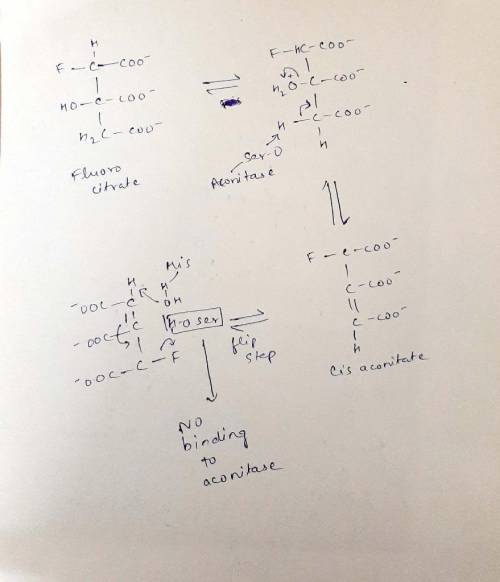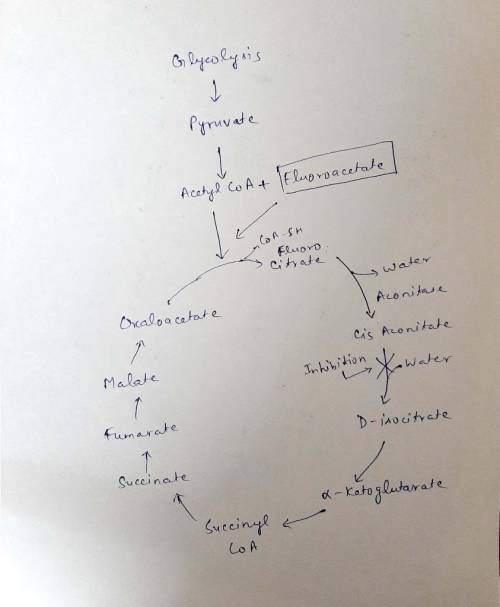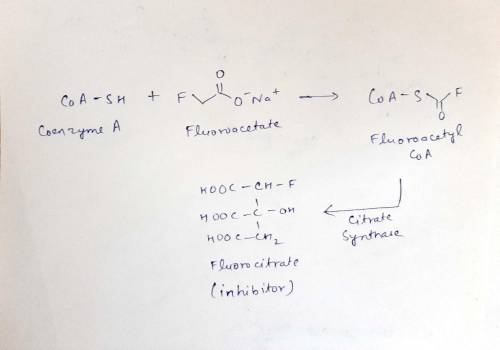
Biology, 10.03.2020 06:24 naocarolina6
The TCA cycle in a particular tissue has been inhibited by fluoroacetate. However, it is not the fluoroacetate that is responsible for the inhibition. It gets converted to another molecule that enters the TCA cycle and is transformed into the inhibitor.
a. Propose the inhibitor molecule and mechanistically show the conversion of fluoroacetate to the inhibitor.
b. Indicate at what step fluoroacetate ultimately inhibits the TCA cycle.
c. Explain why you think fluoroacetate acts as an inhibitor of this enzyme? Your answer should include some sort of mechanistic explanation.
d. What difference in the concentration of each TCA cycle metabolite would you expect, compared with a normal uninhibited tissue? List each metabolite and indicate the effect on its concentration.

Answers: 1
Another question on Biology

Biology, 22.06.2019 09:20
Organize the word parts according to where they appear in a medical term.
Answers: 1

Biology, 22.06.2019 14:00
Atest cross can be used to -predict the phenotypes of a monohybrid cross -predict an unknown genotype of a purebred dominant plant -cross-breed dominant and recessive plants -give probabilities that a trait will appear
Answers: 1

Biology, 23.06.2019 02:30
How many alleles does a gamete carry for each trait? a.one b.two c.millions
Answers: 2

Biology, 23.06.2019 05:30
The presence of iron oxides in rocks, formed during a specific time period, can be used as evidence of oxygen in the atmosphere during that time period. question 18 options: true false
Answers: 1
You know the right answer?
The TCA cycle in a particular tissue has been inhibited by fluoroacetate. However, it is not the flu...
Questions




Mathematics, 23.08.2019 00:30


Social Studies, 23.08.2019 00:30

Mathematics, 23.08.2019 00:30

Mathematics, 23.08.2019 00:30





Biology, 23.08.2019 00:30

History, 23.08.2019 00:30

Biology, 23.08.2019 00:30



Mathematics, 23.08.2019 00:30







